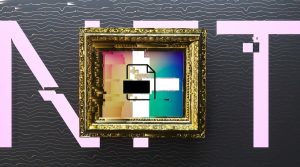NFTs and the Beauty Industry: A Revolutionary Concept

NFTs and the Beauty Industry: A Revolutionary Concept
The beauty industry has been experiencing massive growth in recent years. With the rise of social media and influencers, the demand for unique, personalized products has never been higher. Simultaneously, the world of technology has brought us a new concept called NFTs or non-fungible tokens. NFTs are digital assets that are unique and irreplaceable, stored on the blockchain. They have recently been gaining popularity in the world of art, music, and collectibles. However, the beauty industry has also started to take notice of the potential for NFTs to revolutionize the industry. In this article, we will explore the benefits of NFTs in the beauty industry and the potential for them to change the game entirely.
The Benefits of NFTs in the Beauty Industry
Authenticity
One of the most significant benefits of NFTs in the beauty industry is authenticity. Counterfeit products are a major issue in the beauty industry, with fake products often being sold online or in counterfeit stores. NFTs can help eliminate the risk of counterfeit products by ensuring that products are authentic and unique. Each NFT represents a unique product, making it impossible to create an identical copy. This concept of digital verification could be a game-changer in the fight against counterfeit products.
Customization
The beauty industry is all about customization. Consumers are looking for unique, personalized products that cater to their individual needs. NFTs can help facilitate this by providing a platform for consumers to create their unique products. For example, a makeup artist could create a custom makeup look for a client and turn it into an NFT. The client could then purchase the NFT and have the exclusive rights to that specific makeup look.
Sustainability
Sustainability is a critical issue in the beauty industry. NFTs can help reduce waste and promote sustainability by providing a platform for digital products. Digital products do not require physical materials or packaging, reducing the industry’s overall environmental impact. Additionally, NFTs can help reduce the amount of excess inventory, preventing waste.
NFTs and Makeup
The Concept of Virtual Makeup
Virtual makeup is a new concept in the beauty industry that involves the use of augmented reality (AR) technology to apply makeup virtually. This concept has gained popularity over the years, with many brands creating virtual makeup applications to showcase their products. Virtual makeup allows consumers to test out products before purchasing them, eliminating the risk of buying a product that does not suit them.
The Role of NFTs in Virtual Makeup
NFTs can take virtual makeup to the next level by creating a platform for exclusive virtual makeup looks. Makeup artists and beauty influencers can create unique virtual makeup looks and turn them into NFTs, giving consumers exclusive access to these looks. These NFTs can be sold on marketplaces or auctioned off, creating a new market for virtual makeup products. Additionally, the ownership of the NFT can give consumers access to special perks, such as a virtual consultation with the makeup artist or a discount on physical makeup products.
The Potential for NFTs to Revolutionize Makeup Sales
NFTs have the potential to revolutionize the way makeup is sold. By creating unique and exclusive virtual makeup looks, brands and makeup artists can generate buzz and increase sales. The ownership of an NFT can also create a sense of exclusivity and prestige, leading to increased demand for the product. Additionally, the resale of NFTs can create a secondary market, further increasing the value of the product.
NFTs and Skincare

Personalization of Skincare Routines
Skincare is another area in the beauty industry where personalization is critical. Consumers are looking for skincare products that cater to their individual needs and concerns. NFTs can help facilitate this by providing a platform for personalized skincare routines. Skincare professionals can create customized skincare routines for clients and turn them into NFTs. Clients can then purchase the NFT and have access to a personalized skincare routine tailored to their individual needs.
The Role of NFTs in Personalized Skincare
NFTs can provide a platform for personalized skincare by creating a record of the skincare routine. The NFT can contain information about the skincare products used, the order in which they should be used, and any other relevant information. This information can be accessed by the client at any time, ensuring that they are following their personalized skincare routine correctly.
The Potential for NFTs to Revolutionize Skincare Sales
NFTs have the potential to revolutionize the way skincare is sold. By providing a platform for personalized skincare routines, brands and skincare professionals can generate buzz and increase sales. The ownership of an NFT can also create a sense of exclusivity and prestige, leading to increased demand for the product. Additionally, the resale of NFTs can create a secondary market, further increasing the value of the product.
Challenges and Concerns of NFTs in the Beauty Industry
While NFTs have the potential to revolutionize the beauty industry, there are also concerns and challenges that need to be addressed. One major concern is the environmental impact of NFTs. The process of creating and storing NFTs requires a significant amount of energy and can contribute to carbon emissions. Another concern is the cost and accessibility of NFTs. Currently, NFTs can be costly and not accessible to everyone. Additionally, the potential for fraud and counterfeit NFTs is a concern that needs to be addressed.
Virtual Makeup Try-On Experiences
One of the most exciting applications of NFTs in the beauty industry is the creation of virtual makeup try-on experiences. Using augmented reality (AR) technology, brands can create virtual try-on experiences that allow customers to see how a product looks on their skin before making a purchase. By combining AR with NFTs, brands can create a unique and personalized try-on experience for each customer. For example, a customer could scan their face to create a personalized NFT, which could then be used to try on different shades of lipstick or eyeshadow.
Limited-edition Collaborations of NFTs in the Beauty Industry
Another way NFTs can be used in the beauty industry is to create limited-edition collaborations between brands and artists. This would allow brands to create unique and collectible NFTs that are tied to a specific collaboration or event. For example, a beauty brand could collaborate with a popular makeup artist to create a limited-edition makeup collection, with each product accompanied by a verified NFT. These NFTs could then be sold to collectors and investors, with the potential to increase in value over time.
Authenticity and Provenance of NFTs in the Beauty Industry
One of the key benefits of using NFTs in the beauty industry is the ability to provide proof of authenticity and provenance. By creating unique NFTs for each product, brands can ensure that their products are not counterfeit or fraudulent. Additionally, by tracking the entire lifecycle of a product on a blockchain, brands can provide customers with detailed information about where their products come from and how they are made. This can increase transparency and trust between brands and customers, which is becoming increasingly important in the beauty industry.
Gamification and Rewards of NFTs in the Beauty Industry
Finally, NFTs have the potential to create new and engaging experiences for customers through gamification and rewards. Brands can create NFTs that are tied to specific achievements or milestones, such as reaching a certain level of loyalty or making a certain number of purchases. These NFTs could then be used to unlock exclusive rewards, such as access to VIP events or limited-edition products. By using NFTs in this way, brands can create a sense of exclusivity and excitement around their products, which can increase customer engagement and loyalty.
Sustainability and Traceability of NFTs in the Beauty Industry
Sustainability is becoming an increasingly important concern in the beauty industry, and NFTs can help brands demonstrate their commitment to sustainability and traceability. By using NFTs to track the entire lifecycle of a product, from sourcing raw materials to manufacturing and distribution, brands can provide customers with transparent and verifiable information about their products. This can help customers make informed decisions about the products they purchase and reduce the environmental impact of the beauty industry.
Social Media and Influencers for NFTs in the Beauty Industry
NFTs can also be used to create new opportunities for social media and influencers in the beauty industry. By creating unique and collectible NFTs, brands can collaborate with influencers to create exclusive and engaging experiences for their followers. For example, an influencer could create a limited-edition makeup look, with each product accompanied by a verified NFT. This would create a sense of exclusivity and excitement around the influencer’s content and help brands reach new audiences.
Licensing and Franchising of NFTs in the Beauty Industry
NFTs can also be used in the licensing and franchising of beauty products. Brands can create unique NFTs for each product or location, which can be used to verify ownership and authenticity. This can help brands protect their intellectual property and ensure that their products are being sold in authorized locations. Additionally, by using NFTs to track sales and revenue, brands can provide franchisees with transparent and verifiable information about their business performance.
Innovation of NFTs in the Beauty Industry
Finally, the use of NFTs in the beauty industry can drive innovation and creativity. By creating new and engaging experiences for customers, brands can differentiate themselves in a crowded and competitive market. NFTs can inspire brands to experiment with new product lines, collaborate with artists and influencers, and explore new revenue streams. Additionally, by using NFTs to track the use and impact of their products, brands can gather valuable data and insights that can inform future product development and marketing strategies.
Conclusion
NFTs have the potential to transform the beauty industry by creating new opportunities for transparency, sustainability, personalization, and innovation. While the use of NFTs in the beauty industry is still in its early stages, it’s clear that they have the potential to revolutionize the way we think about and consume beauty products. As the technology continues to evolve and mature, we can expect to see more and more beauty brands embracing NFTs and exploring their potential to create unique and engaging experiences for their customers.








